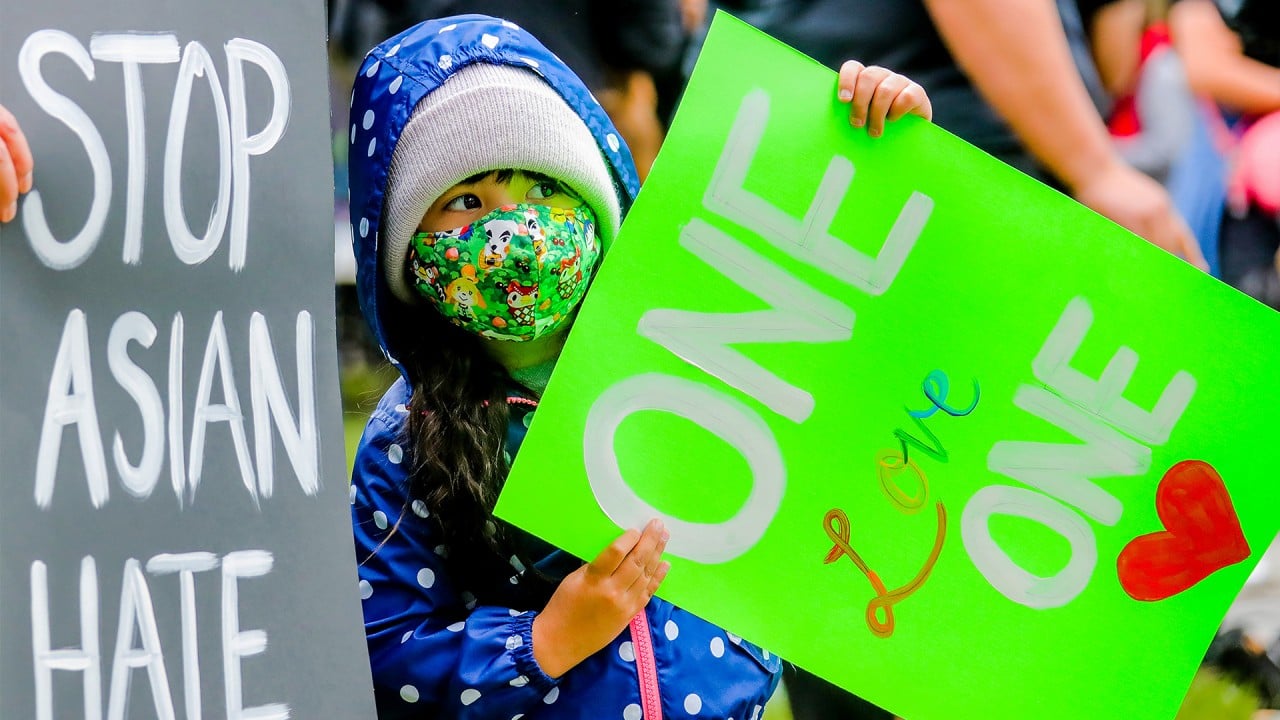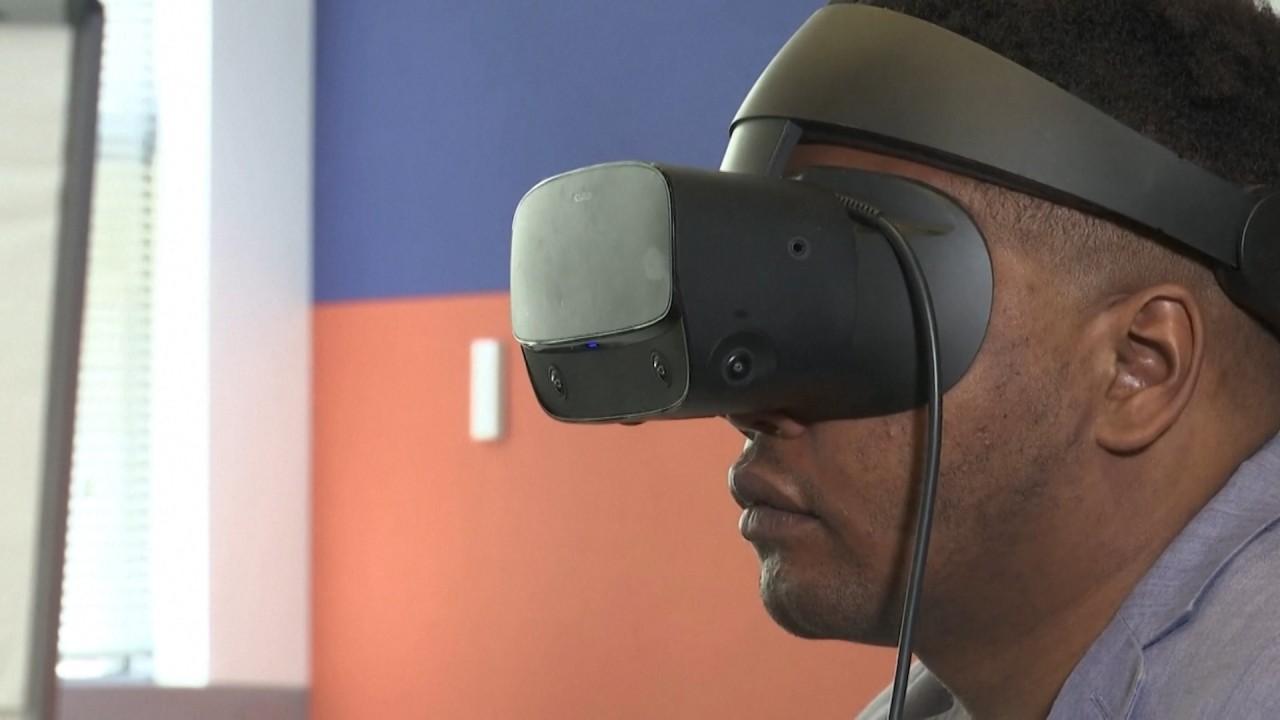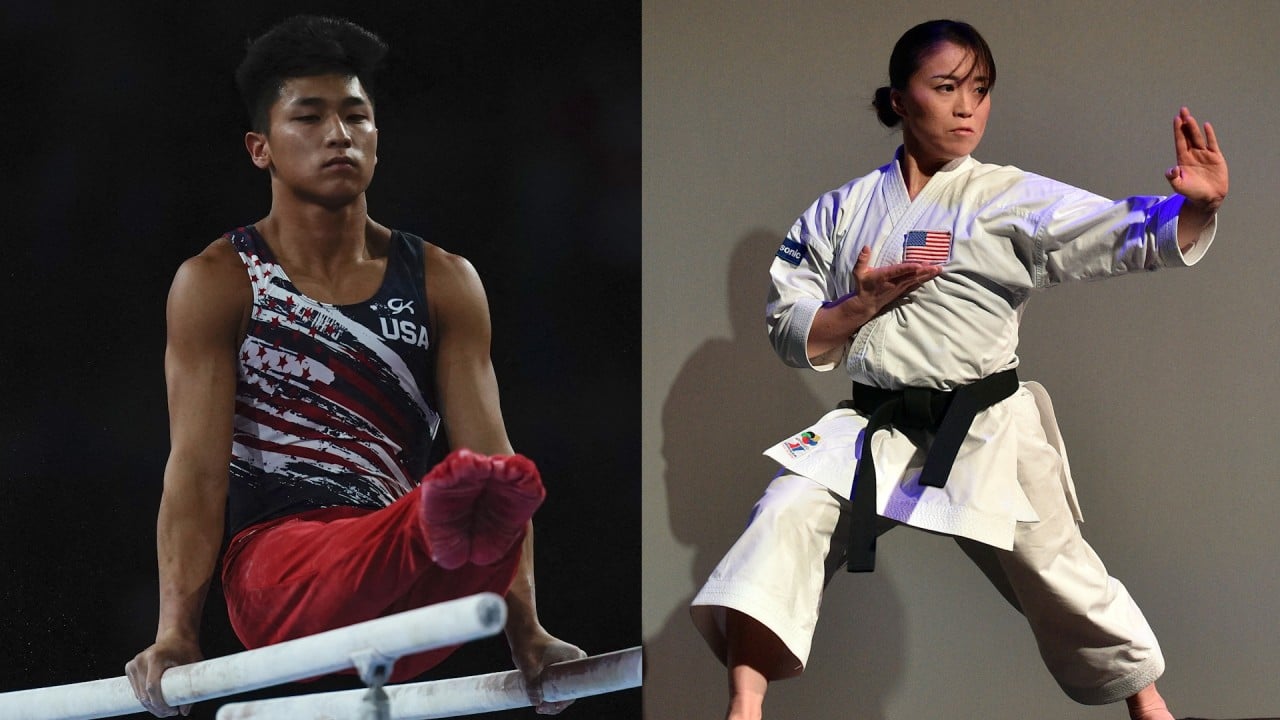
Racism and the Winter Olympics are just the tip of a white privilege iceberg: excerpts from Chandran Nair’s ‘Dismantling Global White Privilege’
- The racism that sparked Black Lives Matter only scratches the surface of the problem; global trade reinforces it, sport plays upon it and education colonises our minds, writes author Chandran Nair
- In his new book ‘Dismantling Global White Privilege’, excerpted below, he details how systemic racism is part of a wider structure of privilege that benefits the West
However, racism is just the tip of the iceberg to a much deeper and insidious phenomenon: white privilege. While systemised racism against African Americans is terrible and must be addressed urgently, the reality is that white privilege has a global reach and very real impacts on the way the world works, from business to geopolitics and media to culture.
Although this is a topic that many may consider inflammatory, it is important to have honest – and respectful – discussions about it if we are to create a more equitable world. Indeed, this is why I was invited by my publisher to write a book on the issue.
In the below excerpts, my aim was to highlight how white privilege has shaped our world; how it is poorly recognised and understood, how it operates at the highest level of international politics, and how it is perpetuated not only through systems of education but through sport, too.
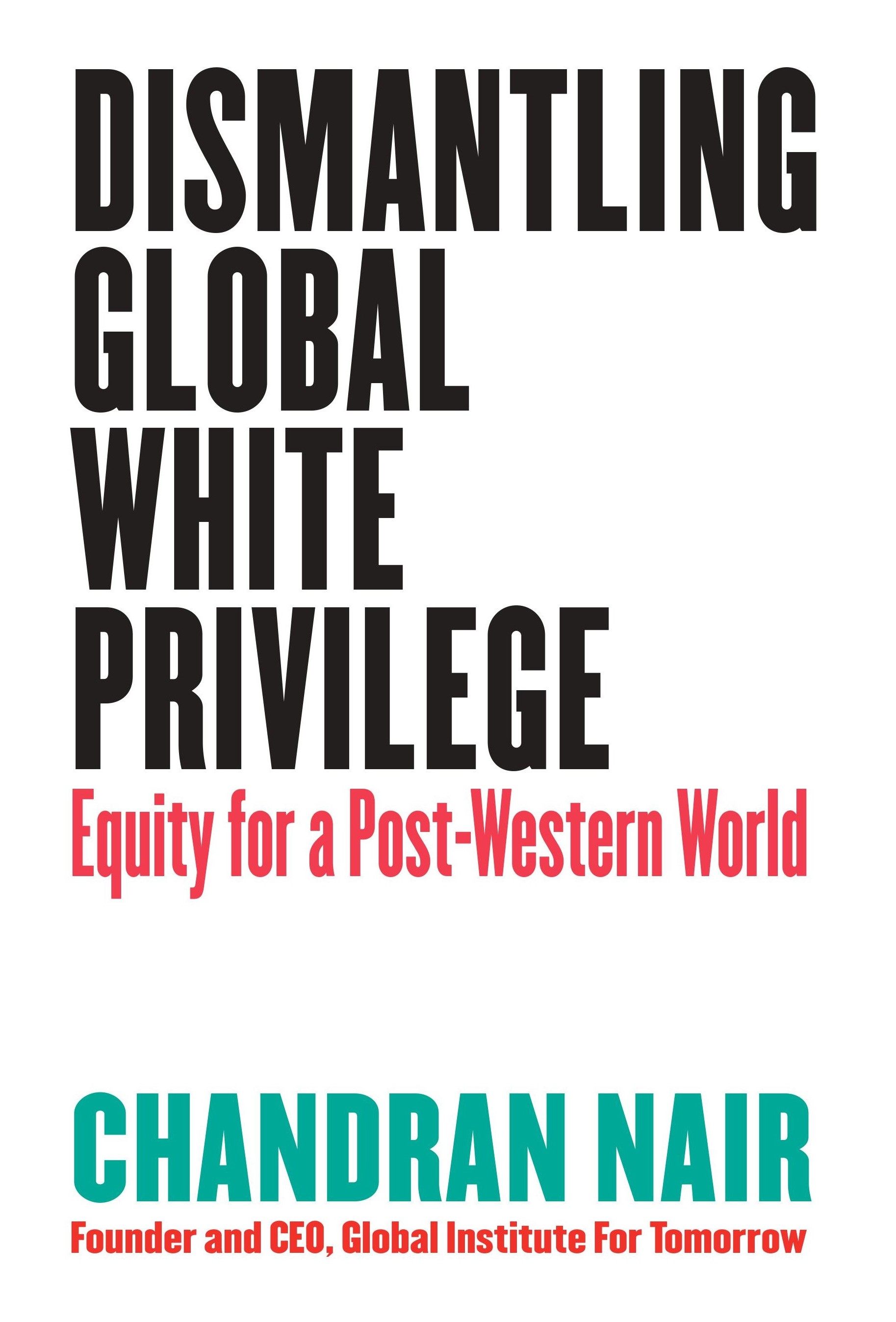
Invisible injustices
To understand the impacts of white privilege, one must first understand what makes it global. Systemic racism is part of a much wider structure of privilege that benefits the West and white people around the world.
First, the 2020 protests appear to have been a turning point for American, and broadly Western, opinion on racial injustice. Many Americans expressed support for the protests and admitted that racial injustice continued to plague the US. More organisations embraced, at least symbolically, the language of anti-racism. Of course, change has not yet come: white privilege remains a powerful political and electoral force, as shown by the presidential elections of 2020 and the unprecedented attack on the Capitol in Washington, DC, by white supremacists.
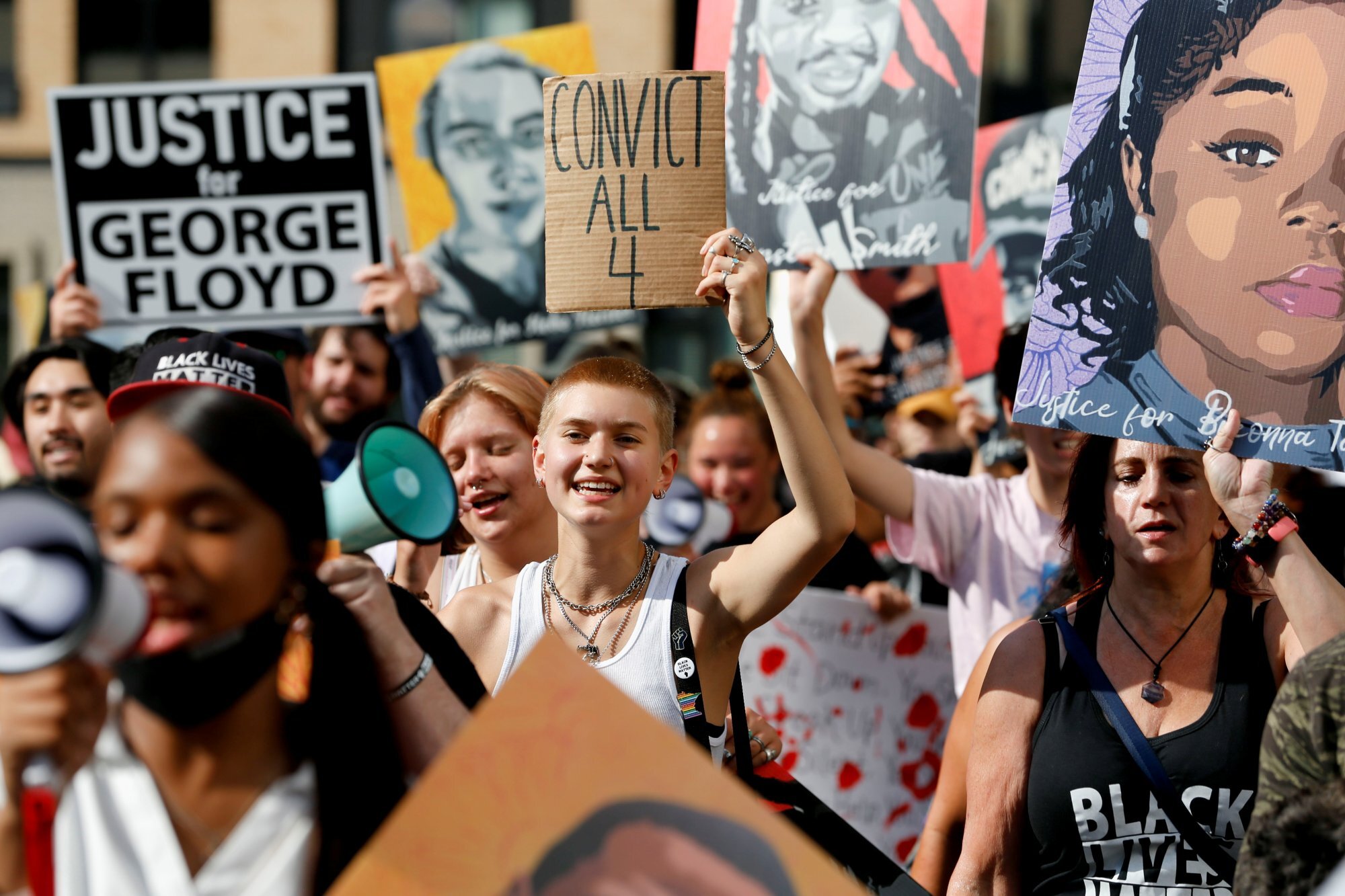
Second, similar protests in other countries, such as the United Kingdom, France, Australia, and Brazil, were targeted inward, protesting against racial injustice and structural discrimination in their own countries.
There is an increasing awareness among the global public that social structures and other norms – from legal and regulatory systems to workplace culture, educational institutions, and popular culture – have helped reinforce the idea of white privilege and grow racist mindsets and behaviours among white communities. These structures and norms have succeeded in entrenching feelings of superiority and at the same time allowed white communities to benefit from a structure that places whites at the top of an economic, political, and cultural pecking order.
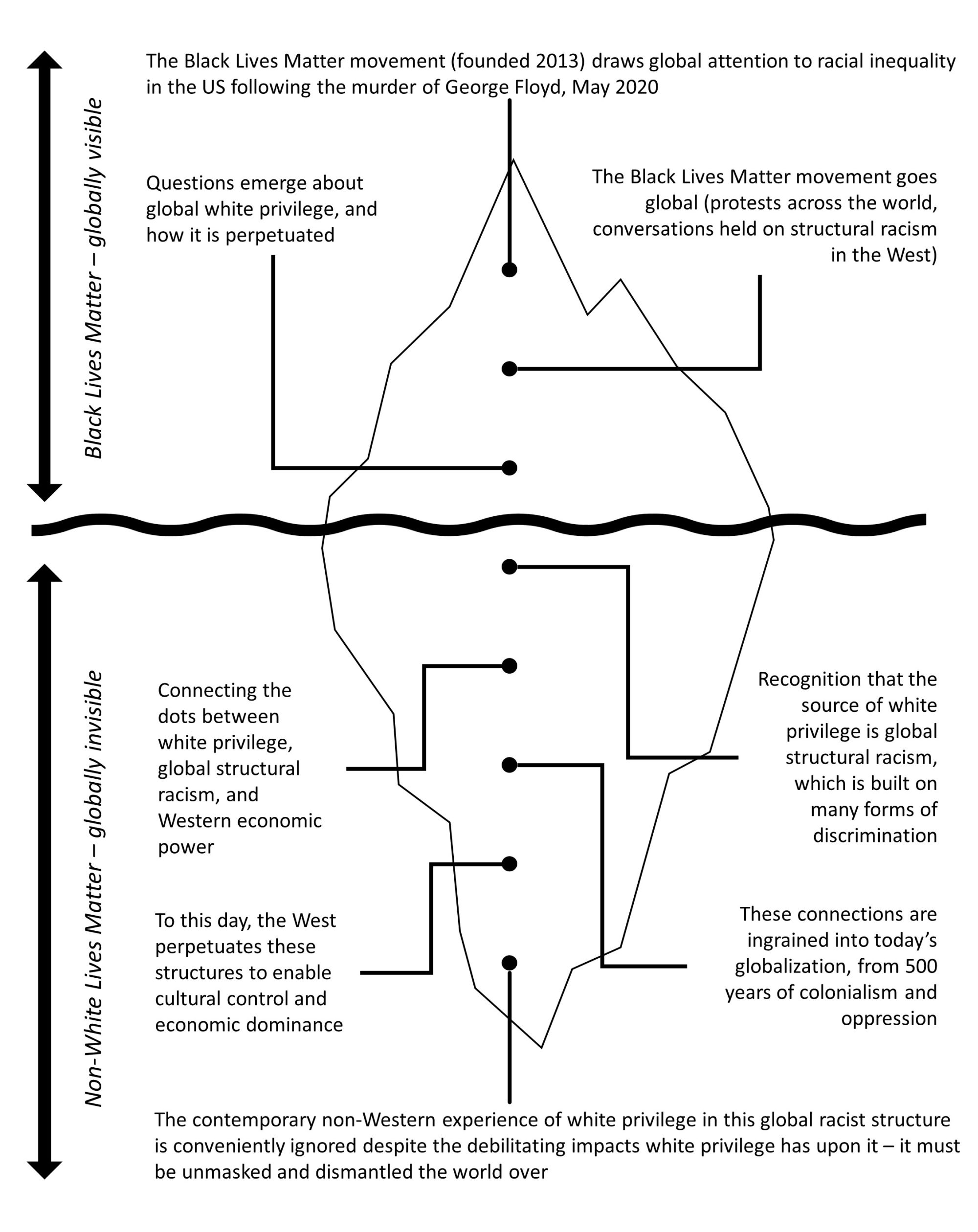
White privilege elevates, shapes, represses, subjugates, and destroys to seek and preserve economic power. Yet much of the mainstream conversation is focused on the domestic instances of white privilege and the suppression of non-white people in Western countries. While these are important topics, we also need to examine the role of white privilege in modern global society, from geopolitics and international business to sports and fashion.
I hope to bridge the middle ground between how academia and popular discourse talk about race; this understanding is critical if people are to have an understandable framework and be equipped to take action.
My thesis is straightforward: examining the ideology and complex workings of white privilege is the best way to understand how oppression and dominance by Western cultures operate and are perpetuated globally, within countries and between them, with the key objective of sustaining economic superiority.
So, while Black Lives Matter is an important and effective way to open people’s eyes to the prevalence of white privilege, it is merely one part of the conversation about whom it harms and how it constrains people’s lives. Figure I. 1 shows how the visible injustices that spark Black Lives Matter should lead us to recognise the invisible injustices that mark global White privilege.
Trading on your privilege
It is impossible to miss the geopolitical tensions that occupy major headlines almost every day. The global machinery of geopolitics – multilateral institutions – are set up to favour white Western interests over others and actually perpetuated by powers such as the US.
Membership in organisations like the G7 and OECD were originally justified on the basis of economic development: both were meant to involve the world’s largest economies. However, with the rise of other countries, membership is now offered on the basis of “democratic values”, justified along Western lines.
When international institutions are set up along Western lines, see the world through Western framings, and are led by Westerners, one should not be surprised if their actions, advice, and prescriptions follow Western framings as well. One should also not be surprised that those who then appear to be the “most qualified” are white, establishing a permanent “ruling class” when it comes to global and elite institutions.
The international bodies that most exemplify this institutional form of discrimination are the World Bank and the IMF. These institutions were set up to manage the global economy, especially in the aftermath of the Great Depression and World War II.
However, these institutions have largely pursued an economic development platform that promotes free markets and deregulation, often at the expense of living conditions on the ground. Developing countries, faced with an economic crisis – oftentimes not of their own making – have been forced to enact sweeping and drastic policy reforms at the insistence of the IMF. These Structural Assistance Programmes were based on the ideas of the Washington Consensus: that economies must be market driven, with reduced public sectors and limited assistance. These reforms were often hugely damaging, destroying standards of living and demolishing trust in political and economic institutions, including in many of the fledgling democracies seen after the fall of the Soviet Union.
Trade agreements – at least those pursued by the West – often include other priorities that are meant to benefit Western companies and business interests. For example, the Trans-Pacific Partnership (TPP) did not just include efforts to reduce barriers to trade but also forced many countries to agree to tighten up their protections for intellectual property, open up their service sectors to foreign firms, and allow Western companies to sue governments in court to overturn regulations they did not like. The TPP was not popular in many of the countries involved in negotiations, but in the end, the promise of better access to the US was enough for them to bite the bullet.
Education colonises our minds
Almost everyone reading this will have been influenced by the educational preferences of the West. But what impact has this had?
Western education and thought have been exported across the world and are universally hailed as the pinnacle of schooling and the most desirable way to achieve success in later life – if you can afford it. The curriculum design, access to educational experiences, ideologies, styles of teaching, systems of schooling, and institutions of Western education have been emulated or disseminated into education systems the world over. The active introduction of Western education into the colonies and its perceived effectiveness in spreading Westernisation make it an incredibly potent tool for maintaining global white privilege. This is because education shapes the minds of generations – whites and non-whites alike – during their most impressionable years, creating entire populations and societies that are sympathetic to Western worldviews, ideologies, historical readings, and cultures.
At a personal level, this means that Western populations are advantaged by an education that is perfectly designed for the world they created, and they thus have a privilege in the global marketplace – for example, lawyers practising “international” law, which is a pseudonym for Western law. Western education is thus perceived as superior to that in the rest of the world, giving those who attended elite Western colleges access to the best employment opportunities in their own nations and across the world, including in the largest multinational companies of our time, most of which are run by white leaders – assumed to be better educated and qualified. A Western education can even give them privileged access to lucrative employment in the non-Western world, where they are placed above educated locals. This is a common lament of many in former colonies where “expats” still receive perks that are shaped by attitudes that belong to the nineteenth century. Simultaneously, the minds of non-Westerners are colonised through selective content and ideological promotion, which convince non-Westerners that West Is Best and White Is Right while ignoring, belittling, or silencing non-Western knowledge and ideals. Thus these non-Westerners will inevitably want to pursue Western lifestyles and beliefs, resulting in the maintenance of white privilege.
Education systems all over the world have curriculums that favour the teachings of Western thinkers and leaders across all fields, which results in the selective silencing of non-Western teachings and value systems, ultimately degrading non-Western culture while promoting Western culture as the global aspiration for all nations. This outcome is a direct result of colonisation, during which Western countries set up entire education structures and modes of classroom-based pedagogy in their colonies. English-language systems were implemented throughout the Commonwealth, French-language systems were taught in Francophone African colonies, and Spanish and Portuguese systems made it to Latin America.
Western students are reared with the assurance that their culture is the literary leader
Take literature, for example. Writings and learnings from white Western authors have a special place in the literary canon taught in schools around the world. Plato, Shakespeare, Tolkien, Homer, Adam Smith, Kant, and so on are venerated as literary greats. They are core components of curriculums at all stages of education, with entire courses dedicated to exploring their works. Of course, there is nothing intrinsically wrong with this – these individuals all produced incredible works worthy of study and appreciation. However, they are not the only individuals to contribute to the literary canon – consider Confucius, whose writings have deeply shaped the culture of the most populous country on the planet; or Imru’ al-Qays, the great Arabian poet whose pioneering use of form and linguistic technique eventually led to the creation of the ode and the sonnet, which Shakespeare is world renowned for using; or Rabindranath Tagore, Bengal’s most renowned philosopher and poet, whose compositions were chosen for both India’s and Bangladesh’s national anthems (Jana Gana Mana and Amar Shonar Bangla respectively).
So why is it that white Western writers take primacy of place in schools outside the West, but Western schools do not regularly teach works of literature from non-Western nations? The answer is a selective curriculum, one that values white Western literary work above that of non-Western literature, giving the false impression that the West was – and still is – responsible for the works of literature that shaped our world. This encourages all students – Western and non-Western – to think that non-Western countries are incapable of producing thinkers and writers who match up to the Western authors they are taught at school.
This is a particularly powerful and active way of instilling notions of white superiority into young people, because literature is one of the key ways in which we all learn, form ideas of ourselves, and try to understand the world around us. Thus students’ being primed to see white Western writers as superior to their non-Western equivalents has a potent effect: Western students are reared with the assurance that their culture is the literary leader; non-Western students are influenced in terms of the books they choose to read and the learnings they choose to follow, as well as in terms of their mindset and values, which may ultimately shift away from the values of the country of which they are a part. This is then reinforced in adulthood by the annual list of book recommendations by supposedly global publications such as the Financial Times, The New York Times, and The Economist, which are dominated by Western authors. The result is a non-Western population that is more aligned with Western ideologies, ideas, and values, and even fantasies about being white.
Bad sports
Racism is well documented in sports. Players, fans, and managers have all been criticised for this, and white privilege works in ways that often shields white players from experiencing racist behaviour in the same way, helps them deny its very existence, and in some cases even becomes a beneficiary. Similarly, as with other careers, the opportunity for career development is bolstered for white members of the sports industry, as they have access to better-paying roles and managerial positions.
But white privilege in sports goes beyond this. It is embedded in and influences the very structures of global sports norms, resulting in a perceived gradient of sporting excellence that starts and ends in the West. It starts there because the headquarters of all major sports are based in the West, which naturally make decisions to benefit the sports ecosystem in the West. It ends there because all non-Western players understand that to achieve sporting fame and greatness, they must compete in the West. Thus the Western sports leagues have the privilege of being offered the best talent, and with the unrivalled media focus, branding opportunities, tournaments, associated products and services, and institutions, the sports industry becomes unassailable in its Western economic entrenchment.
The global structuring of sports is also largely controlled by the West. For example, there are five major sports played and televised around the world: soccer, basketball, cricket, tennis, and rugby union. All five originated in the West. In fact, almost every sport covered in the mainstream media and broadcast to a worldwide audience is Western-centric. Other sports from other parts of the world do not have the same global following at all, due to historical Western preference and spread; for example, cricket spread from the UK around the world during the colonial period.
There are thirty-four Olympic sports, and only one, taekwondo, was founded in and headquartered in a location outside Europe and the US
Again, it is important to be reminded why the contemporary focus of Western sports is preserved: because it reproduces the economic structures that enable Western power and privilege. There is a lot of money to be made if a large Western audience is watching sports, and a large Western audience is guaranteed only if there are also Western clubs playing or owning the sport. This in turn will attract a large global audience raised on the superiority of Western sports competitions and their entertainment value.
In addition, the global network of popular professional sports is centred in the West, with the most prestigious leagues and clubs for most major sports based in Western regions – the English Premier League, Major League Baseball, tennis leagues, and so on. They exist in proximity to the power centres of the global Western media, which has unrivalled channels and access to the rest of the world to promote sports and thus Western soft power – as seen through the lens of white privilege.
Even the Summer Olympics, which is the most popular and participated-in sports event in the world, falls under this banner, despite being the most international event in human history. There are thirty-four Olympic sports, and only one, taekwondo, was founded in and headquartered in a location outside Europe and the US. Yet 206 nations competed in the last Olympics, the vast majority not from the West.
Not only do almost all Olympic sports originate in the West, but the governing body of the Olympics, the International Olympic Committee (IOC), is based in Switzerland. The president of the IOC is German. In fact, there has never been a non-white president of the IOC. Would there even be a Winter Olympics if not for the fact that it involves sports that are borne out of outdoor activities in cool-temperate climates in the West and that are anything but cheap to take on as casual sports?
Dismantling Global White Privilege by Chandran Nair is available from Berrett-Koehler Publishers


